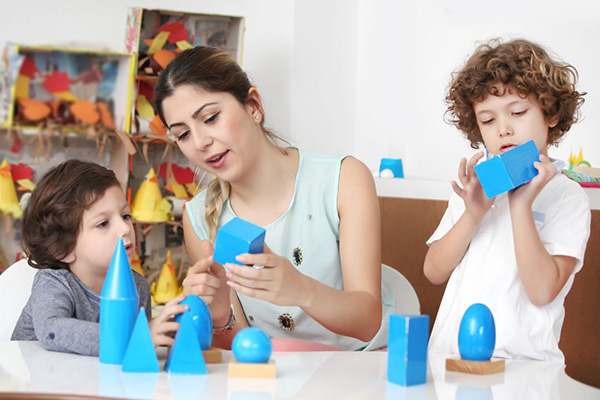When it comes to early childhood education, parents encounter a variety of philosophies and approaches. Among these, Montessori education stands out as a time-tested method that emphasizes child-centered learning, independence, and holistic development. Developed by Dr. Maria Montessori over a century ago, this approach continues to gain popularity worldwide because of its profound and lasting impact on young learners. Let’s dive into the key benefits of Montessori early childhood education.
1. Fostering Independence
Montessori classrooms are intentionally designed to encourage independence from an early age. For example, children actively choose activities within a structured environment, which helps them develop decision-making skills and self-reliance. Moreover, the “prepared environment” includes child-sized furniture, accessible learning materials, and tools that empower children to care for themselves and their surroundings. As a result, these experiences instill a sense of responsibility and confidence that persists throughout life.
2. Cultivating a Love for Learning
In a Montessori setting, the curriculum is carefully tailored to the child’s interests and developmental stage. This personalized approach transforms learning into an engaging and enjoyable process. Consequently, children explore topics at their own pace, which fosters intrinsic motivation and a lifelong passion for discovery. Furthermore, the absence of grades or traditional competition reinforces this natural enthusiasm, creating a positive and supportive learning environment.
3. Encouraging Hands-On Learning
Montessori education emphasizes hands-on, experiential learning. Specialized materials are thoughtfully designed to help children grasp abstract concepts through concrete experiences. For instance, children learn mathematical concepts by manipulating beads and blocks, while language skills develop through tactile letter tracing. As a result, this sensory-based approach not only makes learning more accessible but also reinforces understanding and retention, ensuring that concepts truly resonate with young learners.
4. Supporting Social and Emotional Growth
Montessori classrooms feature multi-age environments, typically spanning three years. This structure naturally promotes peer learning, as older children mentor younger ones, and younger children learn by observing their older classmates. Consequently, these interactions foster empathy, collaboration, and a strong sense of community. Additionally, Montessori education places a significant emphasis on grace, courtesy, and emotional regulation, equipping children with essential social skills that benefit them throughout their lives.
5. Building Concentration and Focus
A core principle of Montessori education is the implementation of uninterrupted work periods. During these times, children engage deeply with chosen activities, which allows them to develop concentration and focus. Over time, this practice enhances their ability to sustain attention and complete tasks—skills that are invaluable in both academic and personal contexts. Furthermore, these moments of focused engagement encourage a sense of accomplishment and pride in their work.
6. Nurturing Holistic Development
Montessori education addresses all aspects of a child’s development: cognitive, physical, social, and emotional. Activities are intentionally designed to balance intellectual growth with practical life skills, artistic expression, and physical coordination. As a result, this holistic approach ensures that children develop as well-rounded individuals, ready to face diverse challenges with confidence and resilience.
7. Promoting Respect for the Environment
The Montessori philosophy consistently emphasizes respect—for oneself, others, and the environment. Children learn to care for their classroom and natural surroundings, fostering a sense of stewardship. Additionally, this respect extends to cultural awareness and an appreciation for diversity, nurturing global citizens who value inclusivity and sustainability. As children grow, these values become deeply ingrained, guiding their actions and interactions.
Conclusion
Montessori early childhood education provides a unique and effective approach to nurturing young minds. By focusing on independence, fostering a love for learning, promoting hands-on exploration, and prioritizing holistic development, it offers children a strong foundation for future success. For parents seeking an educational philosophy that respects and empowers their child, Montessori is an option well worth considering.
As Dr. Maria Montessori famously said, “Free the child’s potential, and you will transform the world.” With its proven benefits, Montessori education continues to unlock the boundless potential within every child, paving the way for a brighter future.




